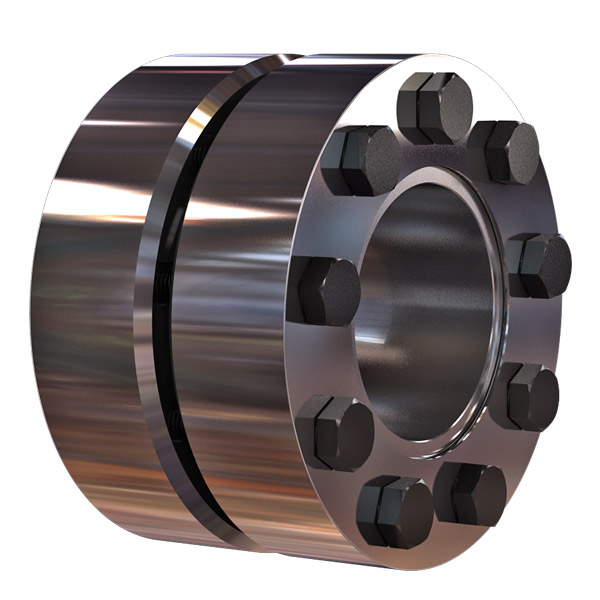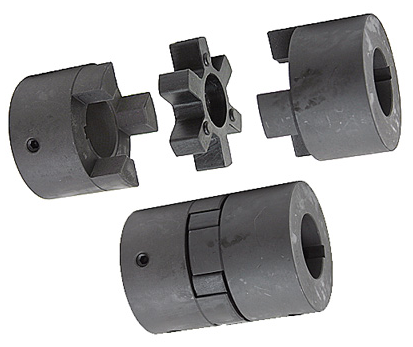Shaft Coupling for Paper Mills
Introduction to Shaft Couplings
Shaft couplings are critical components in the machinery used in paper mills. They ensure the smooth transmission of torque between different shafts in the equipment, thereby maintaining operational efficiency and reducing downtime.
Importance of Shaft Couplings in Paper Mills
In the high-pressure environment of paper mills, shaft couplings play a pivotal role. They help in mitigating misalignment, reducing wear and tear, and enhancing the longevity of the machinery.
Types of Shaft Couplings Used in Paper Mills
Various types of shaft couplings are employed in paper mills, including flexible couplings, rigid couplings, and fluid couplings. Each type has its specific applications depending on the machinery’s requirements.
Flexible Shaft Couplings
Flexible shaft couplings are designed to accommodate slight misalignments between shafts. They absorb shocks and vibrations, which helps in protecting the machinery components.
Rigid Shaft Couplings
Rigid shaft couplings provide a solid connection between shafts, allowing for precise torque transmission. These are used where perfect alignment is paramount.
Fluid Shaft Couplings
Fluid couplings use hydraulic fluid to transmit torque between shafts. They are ideal for applications requiring smooth start-ups and overload protection.
Material Considerations
The material of the shaft coupling is crucial for performance. Common materials include stainless steel, aluminum, and composites, each chosen based on the operational environment.
Design Specifications
The design of the shaft coupling must meet specific engineering specifications, including torque capacity, operational speed, and temperature resistance. This ensures optimal performance and safety.
Installation and Maintenance
Proper installation and regular maintenance of shaft couplings are vital for the longevity of the machinery. Incorrect installation can lead to misalignment and premature failure.
Common Issues and Troubleshooting
Common issues with shaft couplings include misalignment, wear and tear, and failure due to fatigue. Regular inspections and timely replacements can mitigate these issues.
Innovations in Shaft Coupling Technology
Advances in material science and engineering have led to the development of high-performance shaft couplings that offer greater durability, efficiency, and ease of maintenance.
Environmental Impact
The choice of shaft coupling can also affect the environmental footprint of a paper mill. Eco-friendly materials and designs that improve energy efficiency are increasingly being adopted.
Case Study: Shaft Couplings in Action
A detailed case study of a paper mill that improved its productivity and reduced downtime by upgrading its shaft couplings demonstrates the practical benefits of choosing the right coupling.
Future Trends
Future trends in shaft coupling technology include the integration of smart sensors for real-time monitoring and predictive maintenance. This can significantly enhance operational reliability.
Conclusion
Shaft couplings are indispensable for the efficient operation of paper mills. By understanding their types, materials, and maintenance requirements, mills can ensure smoother operations and longevity of their machinery.

What are the three types of coupling?
The three primary types of couplings include rigid couplings, flexible couplings, and fluid couplings. Each type offers distinct advantages based on their design and application.

What coupling is used to connect two shafts?
Various couplings can be used to connect two shafts, but the choice depends on specific parameters and conditions:
- Torque Requirements: The coupling must withstand the torque generated during operation without failing.
- Misalignment Tolerance: Some couplings can accommodate slight misalignments, which is crucial for reducing wear and tear.
- Operating Environment: Factors like temperature, humidity, and exposure to chemicals should be considered.
- Speed of Operation: High-speed applications may require couplings designed for dynamic stability and balance.
- Maintenance Needs: Ease of maintenance and availability of replacement parts can influence the choice of coupling.

What are the two general types of shaft couplings?
The two general types of shaft couplings are:
- Rigid Couplings: These provide a solid connection between shafts, ensuring precise torque transmission. They are used where perfect alignment is required and no relative motion between the shafts is desired.
- Flexible Couplings: These accommodate misalignment and absorb shock loads, making them suitable for applications where shafts are not perfectly aligned or where vibrations need to be dampened.
HZPT is located in Hangzhou, Zhejiang Province, and is a modern enterprise integrating R&D, learning, production, and foreign trade. We adhere to the core values of integrity as our business philosophy, unity, progress, and innovation. We integrate high-tech development, international trade, industrial investment, and domestic and foreign networks, focusing on coupling product research and innovation. Our business spans Asia, Europe, Africa, and North America, moving towards becoming an international group with global influence. Our company specializes in producing drum-shaped couplings, spring pin couplings, serpentine spring couplings, universal couplings, star couplings, expansion couplings, diaphragm couplings, and tire couplings. We have a complete and scientific quality management system and our own technology development and testing department, with CQC, ISO, CE, and other certificates. We can provide customers with excellent sales services and technical support. Serving hundreds of cooperative enterprises, we uphold the business philosophy of ¡°people-oriented, customer first,¡± working sincerely with customers for mutual development. Our company professionally produces and sells shaft couplings.

Product and Company Advantages:
- Advanced Manufacturing Techniques: We utilize cutting-edge technology and machinery to produce high-quality shaft couplings, ensuring precision and durability.
- Comprehensive Quality Control: Our stringent quality control processes ensure that every product meets international standards, providing reliability and performance.
- Innovative R&D: Our dedicated research and development team continuously innovates to meet the evolving needs of the market, offering customized solutions.
- Global Reach: With operations across multiple continents, we have a robust distribution network ensuring timely delivery and support to our clients worldwide.
- Customer-Centric Approach: We prioritize our customers’ needs, offering exceptional pre-sales and after-sales support to ensure complete satisfaction.